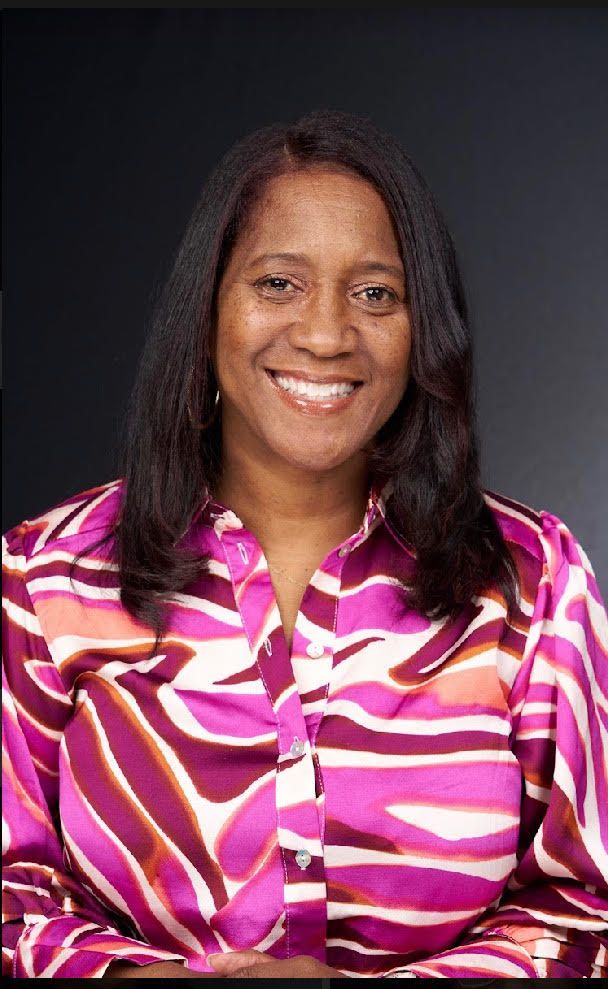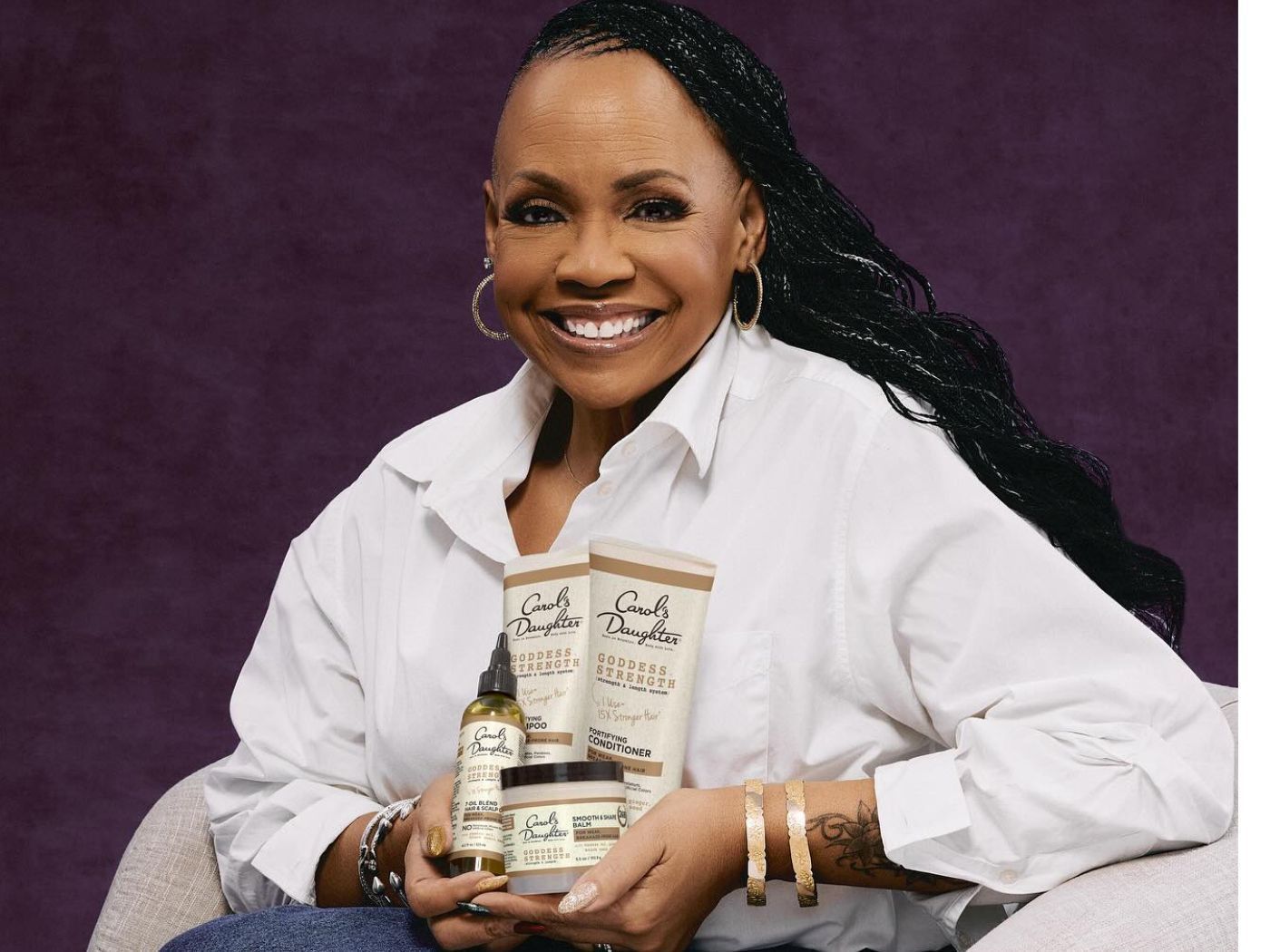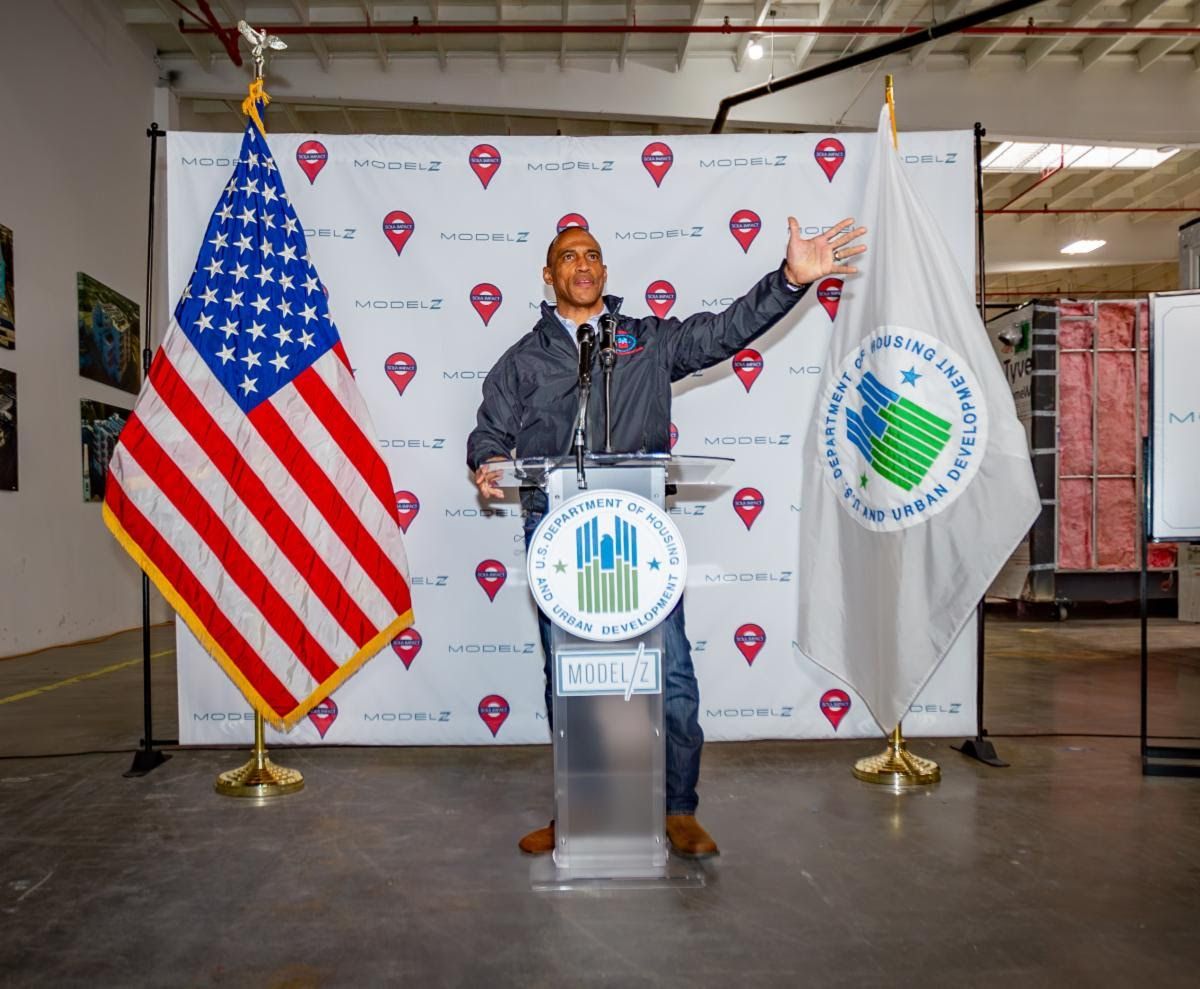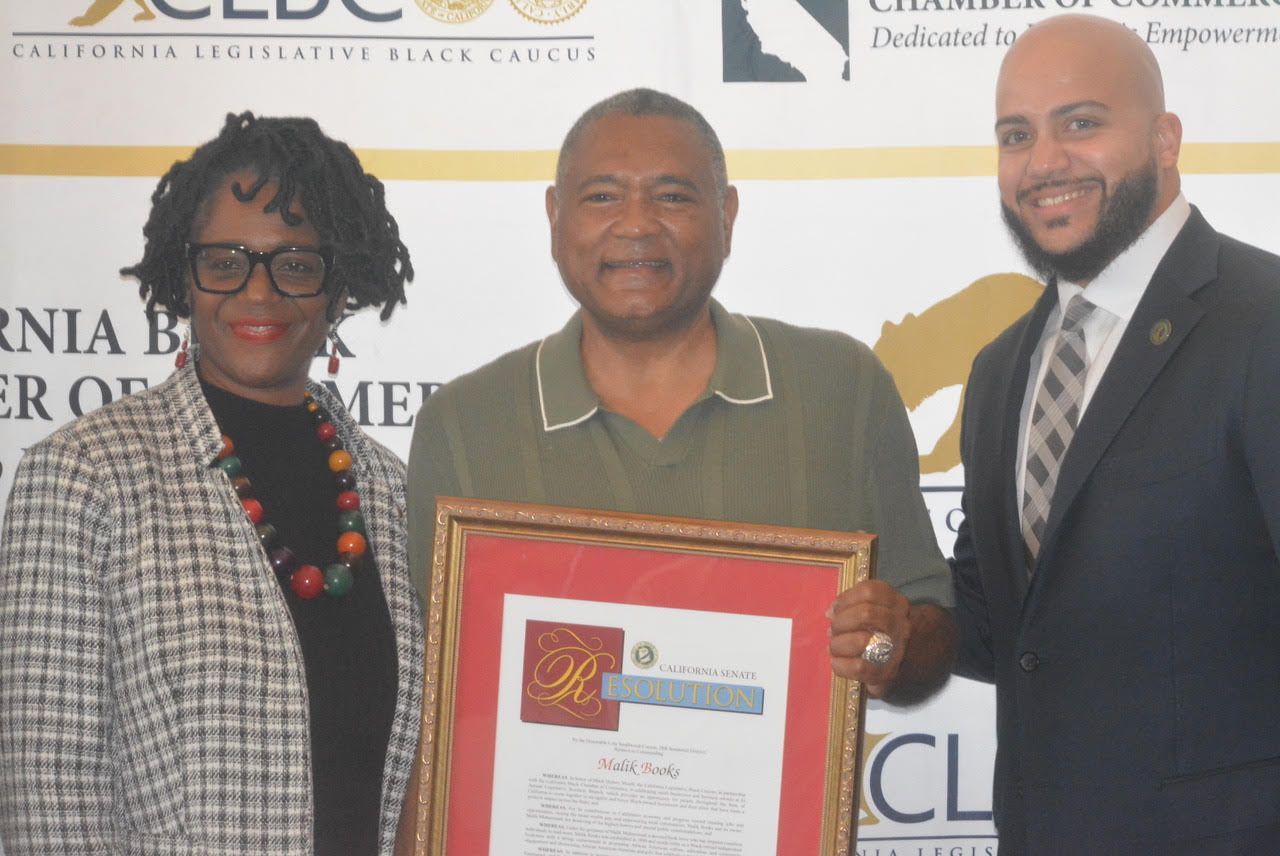Technology
Technology

By UBJ Staff
•
March 26, 2025
(ATLANTA) Move over Instacart! In the months following the country’s shutdown due to the pandemic, Rhandi and Jonathan Altidor noticed something was missing in the food delivery market — Black grocers. Their solution? The couple decided to bridge the gap with The Better Buggy , a grocery delivery service for Black-owned farms and food suppliers in their Atlanta community. “I told my husband that it was really frustrating that weren’t able to support Black-owned stores because a lot of the major outlets that offer [grocery delivery] don’t have smaller Black-owned businesses available,” Rhandi told Because of Them We Can. “We are always team ‘buy Black’ whenever we can, whereever we can — why don’t we fill this void that’s out there and help empower these local Black-owned stores and create this service because it wasn’t there.” The two educators, Rhandi a middle school teacher and Jonathan a school counselor in Fulton County Schools, used their downtime to create the business while juggling married life and parenthood. With help from their family and wider community they’ve been able to make inroads in a predominately white market. The Better Buggy offers same-day delivery for fresh produce and everyday essentials, including vegan, organic, and gluten-free options.

By LaTania
•
March 25, 2025
(INGLEWOOD) Inglewood, California, is a city steeped in culture, resilience, and history. At the heart of this vibrant community stands Yolanda Davidson, an Inglewood native whose life and work embody the spirit of advocacy, service, and unwavering dedication. Born at Centinela Hospital and a proud alumna of Parent Elementary, Morningside High School, and California National University, Yolanda’s roots in Inglewood run deep. Her education also includes completing the prestigious Congressional Black Caucus Institute in 2022 and the California Black Women’s Empowerment and Leadership Program at Cal State Dominguez. These experiences shaped Yolanda into a dynamic community advocate, empowering her with the tools to lead and inspire change. For over 25 years, Yolanda has tirelessly championed causes that matter most to the people of Inglewood. Her advocacy spans across generations, supporting students, elderly residents, and families affected by tragedy. When the Inglewood Unified School District threatened to close Warren Lane Elementary, Yolanda stood shoulder-to-shoulder with parents and children, fighting to preserve the school’s legacy. When four young lives were tragically lost on Park Avenue, Yolanda humanized the victims, supported grieving families, and joined their fight for justice. Yolanda’s influence extends far beyond activism. She regularly attends city meetings, providing vital input on Inglewood’s major projects, while maintaining strong ties with the senior community. Through initiatives like breakfast gatherings at Osage Senior Villas and hosting a Winter Wonderland event , Yolanda ensures that Inglewood’s senior residents feel valued and connected. Her commitment to preserving Inglewood’s rich culture is unwavering. Whether she’s advocating for small businesses impacted by stadium construction, cheering on student athletes, or simply showing up as a volunteer when needed, Yolanda’s deep love for her hometown shines through. Yolanda Davidson exemplifies what it means to be a community leader. Her journey is a testament to the power of resilience, unity, and hope. As Inglewood evolves, Yolanda remains a steadfast reminder that its vibrant culture and strong sense of community will always endure.

By LaTania Smith
•
March 25, 2025
(INGLEWOOD) Inglewood native Primah is a creative force whose soulful voice, songwriting talents, and entrepreneurial spirit are leaving an indelible mark on the music industry. As a singer, songwriter, and co-founder of the Sounds You Need Collective (S.Y.N. Collective) , Primah is helping to redefine how music is used in media while empowering artists to embrace their creativity and business potential. Primah’s journey in music began with her signature sound—a soulful blend of melodic R&B and the gritty energy of today’s hip-hop. Her ability to craft witty, heartfelt lyrics paired with funky beats has made her a sought-after songwriter. Her songs have been featured in popular shows like All American and Issa Rae’s Rap Sh!t , as well as in the globally renowned video game Fortnite . In 2021, Primah took her passion for music to new heights by co-founding the S.Y.N. Collective , an Inglewood-based music licensing agency and independent music publisher. Under her leadership, the S.Y.N. Collective has grown to represent over 90 artists and more than 3,000 songs , achieving 100 placements in television, podcasts, video games, and advertisements. Their work has been featured on platforms such as Facebook Meta Campaigns, the CW, NFL, HBO, CBS, and Netflix , bringing their music to millions of listeners worldwide. Primah’s commitment to empowering artists extends beyond licensing. In 2024, she opened the Duality Production House , an audio recording studio and content space in Inglewood designed to bring artists together, foster collaboration, and teach entrepreneurial skills. The studio has become a hub for creativity, providing artists with a space to grow their craft while learning how to navigate the business side of the industry. Primah is passionate about the power of music in media and its capacity to transform visual content emotionally and globally. Whether it’s penning a heartfelt song, championing the work of emerging artists, or creating spaces for collaboration and growth, Primah’s work is a testament to her dedication to the artistry and business of music.

By LaTania Michelle
•
March 25, 2025
(INGLEWOOD) Adrienne Dixon is a woman of remarkable strength, faith, and compassion. As a wife, mother, teacher, speaker, and trusted advisor, Adrienne has dedicated her life to empowering others and transforming her community. In 2024, she faced one of her greatest challenges—a battle with cancer. Through her unwavering faith and determination, Adrienne emerged victorious and is now proudly cancer-free. Born into a multigenerational family of pastors and leaders, Adrienne’s faith has always been the foundation of her life. This legacy of leadership and service inspired her to make a difference in countless lives, whether through her work in education, her sorority, or her community. Today, she serves alongside her husband, Pastor Geremy Dixon , at the Center of Hope in Inglewood, CA , where her ministry continues to touch lives and uplift spirits. Throughout her journey, Adrienne has been a passionate advocate for women and children, partnering with organizations such as Teen Challenge of Southern California , Claris Health , Forgotten Children , and the Department of Children and Family Services to provide holistic support and resources for vulnerable populations in South Los Angeles. From 2016 to 2024, Adrienne and Pastor Geremy also served as licensed foster parents, opening their home and hearts to children in need. Even as she battled cancer in 2024, Adrienne continued to lead and inspire others. Her faith never wavered, and her story became a beacon of hope for those around her. Now cancer-free, Adrienne’s victory stands as a testament to her resilience, faith, and commitment to serving others. At the Center of Hope , Adrienne leads the Women’s Ministry, empowering women to embrace their purpose and find strength in their faith. She believes in following the example of Jesus by getting closer to people, hearing their stories, and connecting personally to create meaningful change. Adrienne’s life is a powerful reminder of the impact of faith, service, and perseverance. Her work, her courage, and her victory over cancer inspire all who have the privilege of knowing her.

By Kim Anthony
•
March 16, 2025
(BROOKLYN, NY) Carol’s Daughter is officially back under Black ownership and independent operation following L’Oréal’s sale of the beloved textured haircare brand. On March 3, founder Lisa Price announced that she will lead the company into its next era alongside an independent beauty entrepreneur with a proven track record in acquiring and scaling beauty brands. Price, who launched Carol’s Daughter in Brooklyn more than 30 years ago, is stepping into her new role as president with a bold vision. “This next chapter? It’s bolder. It’s fearless. It’s about innovation that doesn’t just follow trends but sets them,” Price shared in an Instagram video. “Most importantly, it’s about deepening our commitment to you—the community that built us. To every person who has ever believed in me, to those of you who have rocked with Carol’s Daughter from day one.” Price opened her announcement with gratitude for L’Oréal, acknowledging their “extraordinary” partnership that helped expand the brand’s reach and impact. L’Oréal echoed its confidence in Price’s leadership and the brand’s continued success under its new ownership. “We are proud of Carol’s Daughter’s long legacy and the transformative impact it has had on the beauty industry,” said David Greenberg, CEO of L’Oréal USA. “At the heart of this legacy is Lisa Price, an entrepreneur ahead of her time who has built Carol’s Daughter into a beloved brand that has honored and celebrated women of color for decades. We are confident that, with Lisa as President and the support of its new partner, Carol’s Daughter will continue to thrive for years to come.” L’Oréal has committed to working closely with Price and her new partner to ensure a smooth transition. Meanwhile, longtime fans have flooded social media with support, excitement, and requests for the return of classic favorites. “Congratulations! Please bring back the body products! Specifically the Ocean scent!” one fan commented. As Carol’s Daughter enters this new era, one thing is clear: the brand is ready to embrace its roots, push boundaries, and continue shaping the future of beauty on its own terms.

By LaTania Smith
•
March 16, 2025
(INGLEWOOD) Alexis Coleman has devoted her life to uplifting and inspiring urban youth, creating opportunities for students to succeed academically and thrive as future leaders. As a transformative educator and Co-Founder & Executive Director of the Urban Scholar Academy, Alexis has redefined what it means to serve her community through innovative programs, tireless advocacy, and a deep passion for education. As Co-Founder and Executive Director of the Urban Scholar Academy, Alexis has expanded her reach, providing life-changing educational services to the Inglewood community. The Academy, which started with just 12 families, now serves over 700 families, helping students achieve 214% faster growth in mastering math and reading Common Core standards. Programs such as the Homework Club, Tutoring Programs, Distance Learning, Film Academy, and Seasonal Camps have become models of excellence, conducting more than 14,000 individualized tutoring sessions to date. One of the Academy’s most notable accomplishments is its partnership with World Wrestling Entertainment (WWE) to establish the country’s first-ever WWE Learning Center, bringing unparalleled opportunities to Inglewood’s youth. Alexis’s contributions extend far beyond the classroom. Her unwavering dedication to education and community development has earned her numerous accolades, including the 2023 WWE Community Champion Award, the 2022 Super Bowl LVI Legacy Champion Award, and back-to-back Los Angeles Clippers’ “Community Hero” Awards in 2021 and 2020. She has also been recognized as a Global Giving/Red Backpack National Female Entrepreneur, among many other honors. Beyond her leadership at Urban Scholar Academy, Alexis is a prominent figure in nonprofit and policy circles. In 2023, she was one of only 20 Black leaders nationwide selected for the Institute of Nonprofit Practice’s Black Leadership Institute. She also serves as a regional representative for the Expanded LA Network’s Southwest region, a member of the Community Response System of South Los Angeles (CRSSLA), and an alumna of the prestigious Los Angeles African-American Women’s Public Policy Institute (LAAAWPPI). Through her leadership, passion, and vision, Alexis Coleman continues to create opportunities that inspire and empower Inglewood’s youth, proving that education is the key to unlocking limitless potential.

By SoLa Impact
•
March 8, 2025
On March 6, SoLa Impact hosted Secretary of the U.S. Department for Housing and Urban Development (HUD), Scott Turner, at the Model/Z factory in Watts. The meeting's focus was on the urgent housing crisis in Los Angeles and the city's post-wildfire rebuilding efforts. Secretary Turner expressed a firm commitment to regulatory reform, streamlining the housing entitlement and construction processes, increased private sector collaboration, and the administration's focus on addressing homelessness and the housing crisis. It is also clear that Opportunity Zones 2.0 will be a major focus of the President and the new HUD Secretary. Mr. Turner met in a closed-door meeting with SoLa leaders Martin Mutoto and Gray Lusk, along with LA Mayor Karen Bass, LA City Council President Marqueece Harris-Dawson; Lourdes Castro Ramirez, CEO of HACLA; Emilio Salas, Executive Director of LACDA; Tiena Johnson Hall, General Manager of the Los Angeles Housing Department (LAHD); and, at our invitation, Debra LaFranchi, CEO of SDS Capital Group, and Pastor Martin Porter, CEO of Logos Faith Development. The discussion centered on HUD's priorities, the Section 8 voucher program, the possibility of restoring rents in low-income communities to previous levels, and changing Los Angeles' regulatory environment for entitling and building housing. The new administration's willingness to embrace the private sector in driving affordable housing was evident, and Mr. Turner was very complimentary of SoLa's and Model/Zl's business model.

By UBJ Staff
•
March 5, 2025
The Multicultural Business Alliance (MBA) has launched EmpowerHER, a new initiative dedicated to supporting and uplifting women-owned businesses across Los Angeles, San Bernardino, and Riverside Counties. On March 8, 2025, at the Ontario Airport Hotel & Conference Center, this special event will bring together distinguished business owners, elected officials, and industry leaders to celebrate International Women’s Day. The event will feature a panel discussion and networking opportunities, providing a platform to recognize the achievements of women in business and leadership. EmpowerHER is designed to foster a strong and inclusive business community by encouraging professionals to engage in meaningful discussions, share insights, and connect with like-minded individuals. The event highlights the essential role of women entrepreneurs and leaders in driving innovation, building communities, and creating economic opportunities.

By Antonio Ray Harvey | California Black Media
•
February 18, 2025
(SACRAMENTO) In celebration of Black History Month, the California Legislative Black Caucus (CLBC) and the California Black Chamber of Commerce (CBCC) recognized 16 honorees at the annual Black Business Brunch on Feb. 10 at the Citizen Hotel in Sacramento. The small business owners from every corner of the state were recognized for their entrepreneurship, contributions to their respective communities, and vital roles in improving California's economic landscape. The proprietors were chosen by members of the CLBC and CBCC. They were honored on the Assembly floor at the State Capitol later that afternoon. “We gather here today to honor the incredible African American, small business owners of California,” Jay King, President and CEO of CBCC, told California Black Media. “We have to show them some love because they are the heart and soul of our communities. Their tireless work and unwavering dedication show what it means to be leaders”

By UBJ Staff
•
February 14, 2025
In the heart of Long Beach, a new initiative is bringing nonprofit leaders, community champions, and changemakers together—one cup of coffee at a time. Denise Peoples and 21st Century STEM are launching a special series of Coffee Meetups, beginning Tuesday, March 4th , at 10:30 AM at Café Lorel , in Long Beach, California. These gatherings aim to foster collaboration, resource-sharing, and innovative problem-solving among nonprofit organizations. Recognizing the challenges that small nonprofits often face—such as limited funding, staffing, and visibility—this initiative provides a space where leaders can exchange ideas, form strategic partnerships, and find collective solutions to common obstacles .
Urban Business Journal
Los Angeles | Inland EmpireCopyright 2021 Urban Business Journal IE
An Urban Excellence Organization Initiative
An Urban Excellence Organization Initiative
Privacy Policy - Terms of Service
Urban Business Journal
Los Angeles | Inland EmpireCopyright 2021 Urban Business Journal IE
An Urban Excellence Organization Initiative
An Urban Excellence Organization Initiative
Privacy Policy - Terms of Service
